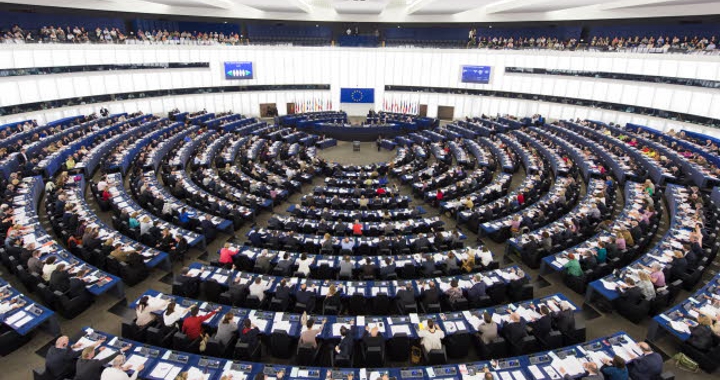The European Parliament accepted a strongly worded condemnation of Prime Minister Viktor Orbán’s government for suggesting that it wanted to reintroduce capital punishment and for its overtly racist hate campaign against immigrants and potential refugees. While Mr. Orbán tried to rationalize and explain away his government’s rhetoric and policies when speaking in the EP a few weeks ago, it is interesting to note that parliamentarians ultimately adopted the stronger language that had been proposed by the left-centre, liberal and green factions. The EP also called upon the European Commission to begin immediately monitoring the Orbán government’s rule of law violations and to enforce the Charter of Fundamental Rights and the Treaties in Hungary. The resolution passed by a wide margin of 362 to 247, with 88 abstentions, many of which were from Mr. Orbán’s European People’s Party colleagues and from the Alliance of European Conservatives and Reformists.
We trust that this clear condemnation on the part of the EP may convince the Canadian government, which has thus far been silent on the rule of law violations in Hungary, to re-think its approach to the Orbán regime. One would hope for the same degree of reflection from the opposition Liberal Party of Canada, as well as from the New Democrats. The full-text of the EP’s press release following the passing of the resolution can be read below.
The European Parliament asks the European Commission to assess the situation in Hungary and to establish an EU mechanism to monitor democracy, the rule of law and human rights annually across the EU, in a resolution voted on Wednesday. Reinstating the death penalty in Hungary would breach the EU Treaties and Charter of fundamental rights, and the wording of the Hungarian government’s public consultation on migration is “highly misleading, biased and unbalanced”, it says.
In the resolution wrapping up the 19 May plenary debate with Hungary’s Prime Minister Viktor Orbán and Commission First Vice-President Frans Timmermans, MEPs condemn Mr Orbán’s repeated statements on the possibility of reinstating the death penalty in Hungary and stress the duty of prime ministers to “lead by example”.
Death penalty would trigger EU Treaty Article 7 sanctions
The death penalty is “incompatible with the values of respect for human dignity, freedom, democracy, equality, the rule of law and respect for human rights on which the union is founded”, they stress, adding that any member state reintroducing the death penalty would be “in violation of the Treaties and of the EU Charter of Fundamental Rights”. They note that a serious breach by a member state would trigger the EU Treaty Article 7 procedure, which could lead to the withdrawal of its voting rights in the Council.
Migration consultation misleading, biased and unbalanced
MEPs also denounce the Hungarian government’s public consultation on migration. Although “public consultation can be an important and valuable tool for governments to develop policies”, “the content and the language used in this particular consultation is “highly misleading, biased, and unbalanced; establishing a biased and direct link between migratory phenomena and security threats”, they say.
Need for better monitoring of democracy and the rule of law
They call on the Commission to “immediately initiate an in-depth monitoring process on the situation of democracy, rule of law and fundamental rights in Hungary and to report back on this matter to the European Parliament and Council before September 2015”.
The Commission is also asked to present a proposal to establish an EU mechanism on democracy, rule of law and fundamental rights, as a tool for ensuring compliance with and enforcement of the Charter of Fundamental Rights and the Treaties as signed by all member states, MEPs say. They also instruct Parliament’s Committee on Civil Liberties, Justice and Home Affairs to help elaborate this proposal by drafting a non-binding resolution to be voted by Parliament as a whole by the end of this year.
European Parliament




